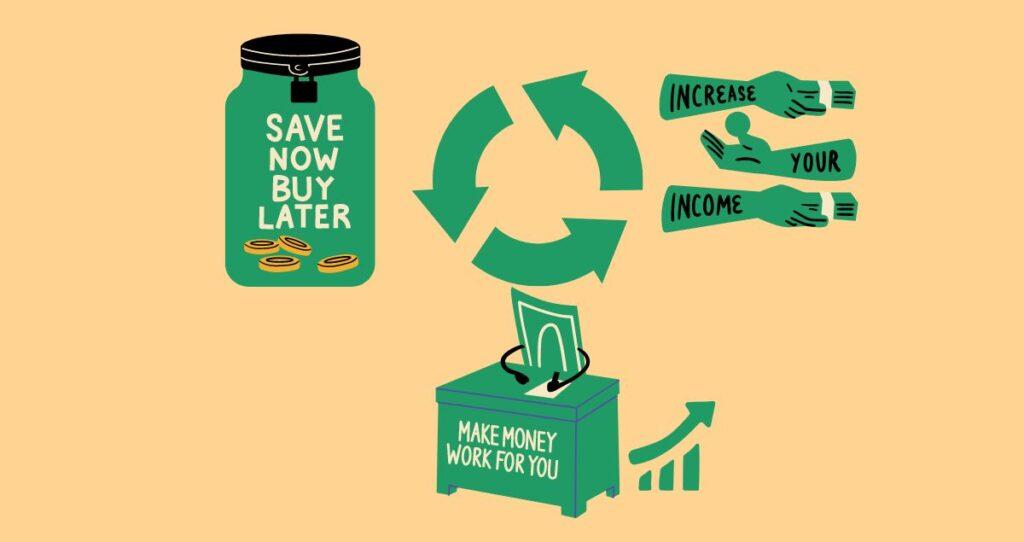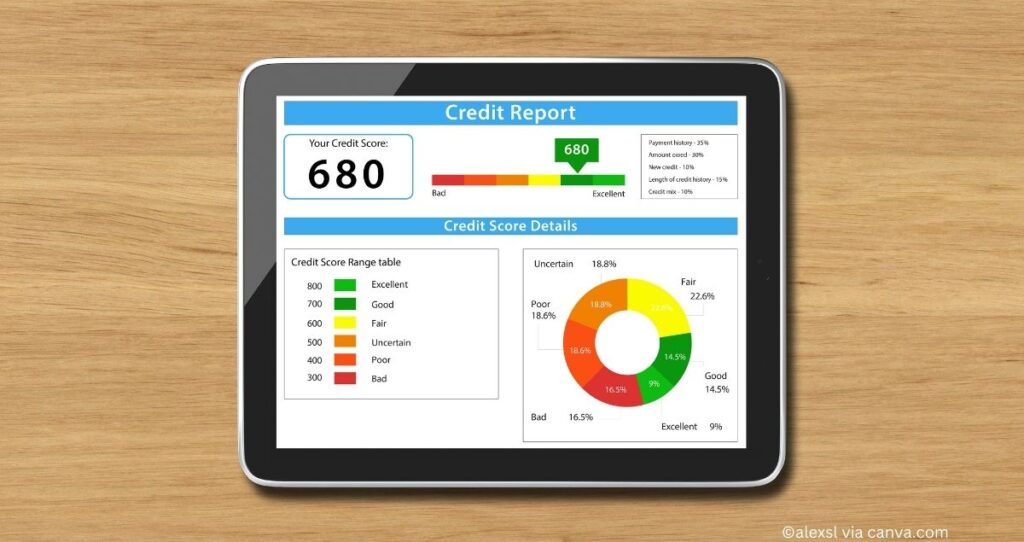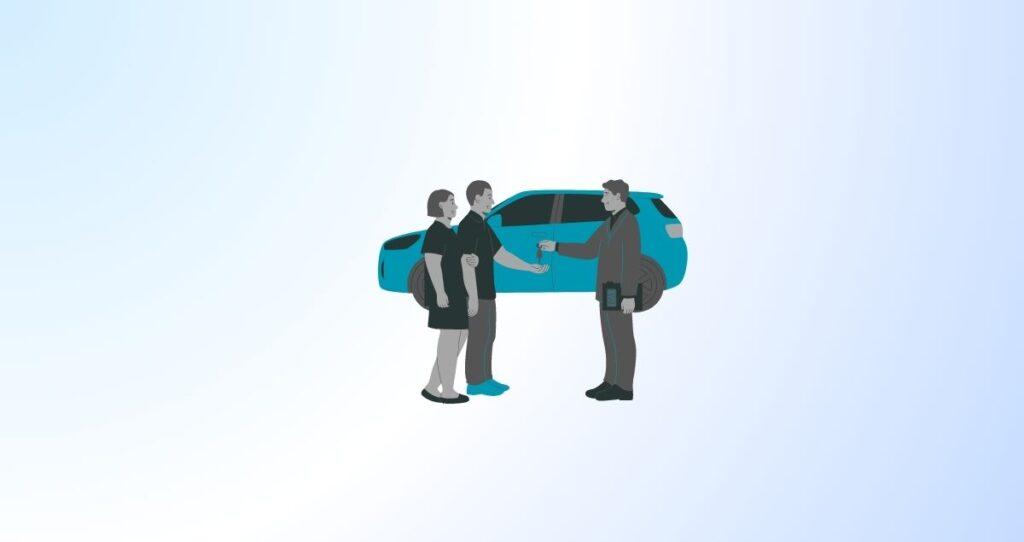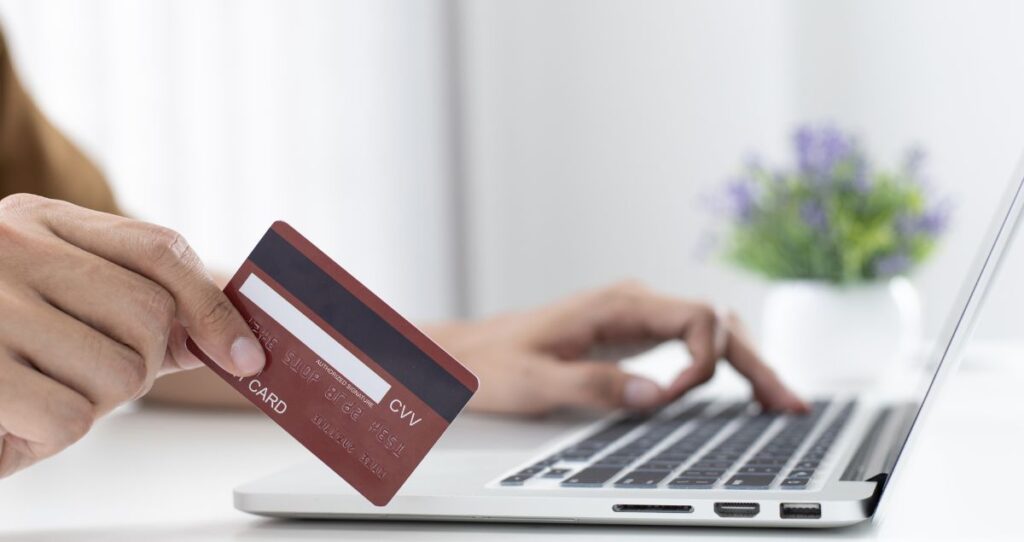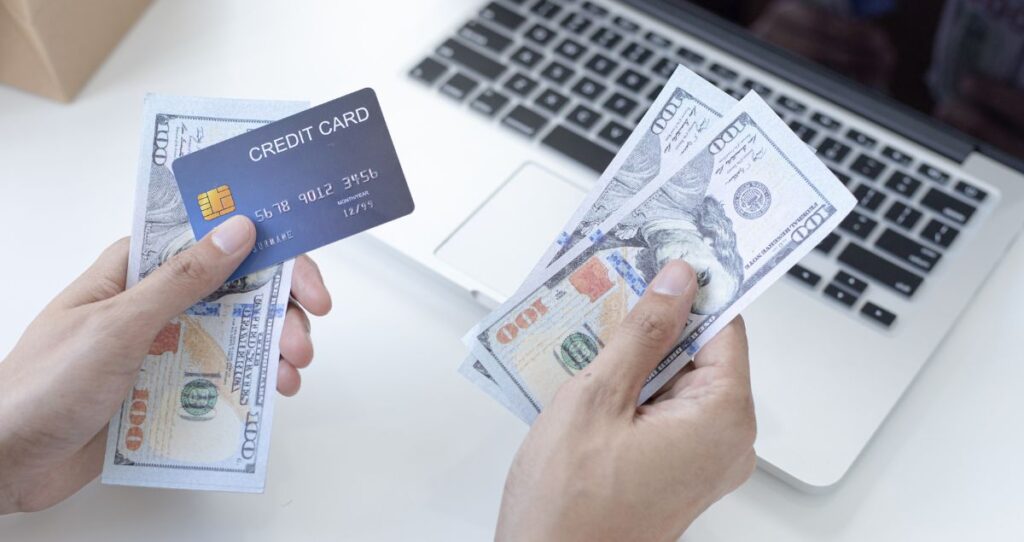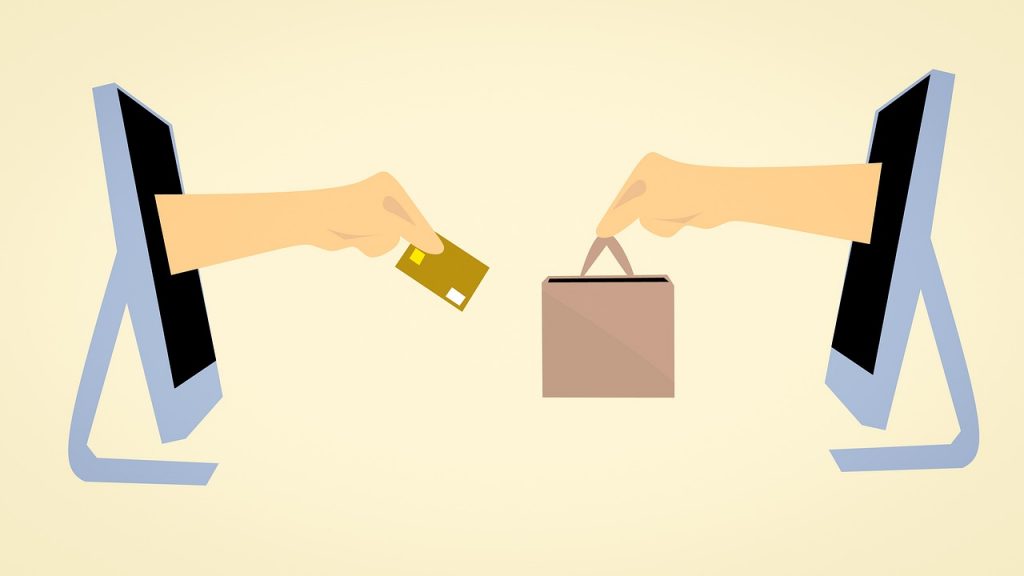A credit card is a plastic or metal card from a financial institution that allows you to pay for goods and services. Simply put, a credit card is a small loan in the form of a line of credit you use and pay back at your convenience. You can get a credit card from a bank, a credit union, or other financial institutions.
Each credit card has a credit limit, representing the maximum amount the lender allows you to spend on the card. For example, a credit card with a $2,000 credit limit means you cannot spend more than $2,000 on the card. This credit limit can be increased over time, and the line of credit stays open indefinitely as long as the account is open. Unlike debit cards that allow you to withdraw cash, credit cards are not meant for withdrawing cash.
Some credit cards, however, allow you to withdraw cash from an Automatic Teller Machine(ATM) or as cash back at a cash register in exchange for very high interest and fees. This transaction is formally known as a cash advance, and you should avoid it at all costs.
Summary of credit cards
- Credit cards can help you build credit if you use them responsibly. Check out how I raised my credit score to 825 with only three credit cards in less than 5 years.
- Many credit card issuers have rewards programs where you earn cash back, miles, or points.
- If you don’t pay your credit card balance in full by the due date, you will pay interest on the remaining balance.
- Each credit card comes with a credit limit, which depends on your creditworthiness, and the lender might increase it over time if you use the card responsibly.
- Credit cards usually offer more protection compared to debit cards. Always contact the card issuer immediately after learning your card was stolen. Federal law requires card issuers to not charge you more than $50 for unauthorized usage if you report fraudulent activities to the card issuer as soon as possible.
- Each credit card comes with a grace period. This is the time between the end of a billing cycle and the due date. You don’t pay interest when you pay your balance in full during the grace period.
- Credit cards are a form of revolving credit, meaning you can use the card and pay it off indefinitely if you don’t close the account.
- Some credit cards have an annual fee, especially those with higher rewards and travel benefits.
- You can have as many credit cards as you qualify for, but keeping the number of credit cards you carry under 5 is always a good idea.
- Interest on credit cards is usually compounded, which means you pay interest on the principal and accrued interest.
- It is easier to get into credit card debt but hard to pay it off due to high interest that is also compounded.
- If you are having trouble managing your credit cards or paying off your balances, you can consolidate your credit cards under a single card through the balance transfer process.
Check out these 19 best debt management strategies to help you pay off your debts.
How do credit cards work?
A credit card allows you to make purchases of goods and services on credit. For any transaction you make with a credit card, you always pay that balance back with interest unless you pay off the card in full before the end of the billing cycle. Credit cards are a form of revolving credit, meaning the account stays open and renews automatically as you use the card and pay off the balance.
The interest on credit cards usually compounds daily and is much higher than other forms of loans. You should expect to pay as high as 25% APR on a credit card, but of course, the interest you pay depends on your creditworthiness and the type of card you have. All activities on your credit card are reported to credit reporting agencies(Equifax, TransUnion, and Experian) and then used to calculate your credit score.
Paying your bills on time and keeping your credit utilization under 7% is a great way to maintain a healthy credit, boost your credit score, and avoid credit card debt. If you suffer from overspending, using a credit card only for transactions you have cash for and then using that cash to pay it back immediately is a good idea.
If you are new to credit or have bad credit, applying for a secured credit card will give you the convenience of credit cards while also helping you build or repair your credit. A security deposit is required before you can open a secured credit card account. Your deposit is then returned when you close the account.
Most credit cards offer rewards in the form of cashback, discounts, miles, and points. For example, if your card comes with 5% cash back on groceries up to $1,500, buying a $1,000 groceries means you will get $50 cashback.
Types of credit cards
There are many types of credit cards, and here is a list of common types.
- Rewards credit cards. Among rewards credit cards, there are point cards and cashback credit cards. Point cards give you points you can redeem for rewards like gift cards, merchandise, or travel, while cashback cards give you cash back or points for qualifying purchases.
- Secured credit cards. These types of credit cards require a security deposit to open an account.
- Store credit cards. These are issued by specific retailers such as gas stations and department stores and can only be used to purchase at those stores.
- Travel credit cards. There are usually two categories of travel cards. The first one is general cards, which are regular cards that also offer travel benefits. The second type is co-banded cards tied to a specific airline, such as Delta Airlines, or a specific hotel, such as Hilton.
- Student credit cards. These cards come with lower credit limits and are intended for students to start building credit.
- Balance transfer cards. These are cards with lower rates, such as 0% APR, designed to help you pay existing debt.
- Business credit cards. These cards allow business owners to access credit without using their personal credit cards for business needs.
What are the benefits of credit cards?
Although credit cards have a higher APR than conventional loans, they can be helpful in your daily life.
The following are some of the benefits of credit cards.
- They can help you save money on your purchases through cash rewards
- You might have the option to check your credit score for free in your account when you have a credit card
- They can help you increase your credit score
- You can use credit cards for reserving hotels and related travel services
- Credit cards can be used for a down payment on houses, car loans, and associated transactions
- A credit card(s) can help you improve your credit mix, a factor in your credit score calculation.
- Credit cards increase your purchasing power
- They give you a chance to build your credit history
- You can get cash from your credit cards. Remember that you will pay high interest and fees when you withdraw cash from your credit card.
What are the disadvantages of credit cards?
Even though credit cards have a lot of advantages, they have hidden risks. Without using them properly, you can end up in a lifetime of financial hardships.
The following are some of the disadvantages of credit cards.
- You will pay high interest charges on outstanding balances
- It is easy to hurt your credit score if you don’t use credit cards responsibly.
- They come with overspending temptations to some users
- Your credit card information can be hacked or stolen
- The 0% APR introductory APR does not last forever. It is there as bait.
- You have to make payments every month (if you used your card)
- You could pay penalties and other charges if you do not meet the minimum payment requirements
Can I withdraw cash from a credit card?
Typically, credit cards are not meant to withdraw cash. However, some credit cards allow you to withdraw money in exchange for a high interest and a fee. Such a transaction is known as a cash advance, and you can complete it at an ATM or a cashier register when you make a purchase. The cash advance interest is usually much higher than regular credit card interest and starts compounding the same day you withdraw the money. Additionally, you pay a service fee, which is usually a flat fee or a percentage of the money you withdraw.
Learn more about cash advances and how much you get charged.
What happens when you carry a balance on a credit card?
When you have a credit card balance, the lender usually requires you to pay the minimum payment in your account. To avoid paying interest on your balance, you should try to pay off your card in full before the due date each month. The best time to make a credit card payment is during the grace period between the end of a billing cycle and the due date.
For example, if your cycle ends on March 1 and your bill is due on April 23rd, your grace period is 22 days. Most lenders release your monthly statement a few days after the due date, showing the remaining balance on the card. By then, the interest will have already been applied to the balance you carried over to the next payment period. You will need to pay the remaining balance and additional purchases before the due date of the following month.
Check out this guide detailing how to take advantage of your credit card grace period.
What do I do when my credit card is stolen?
When your credit card is stolen, the first thing to do is to contact your credit card issuer and report the theft. This is part of protecting your information, but you should also put measures in place to minimize the damage to the account. The Fair Credit Billing Act also protects you and limits your out-of-pocket for any unauthorized transaction to $50 when you report the theft immediately.
The next best thing to do after your credit card is stolen is to freeze your account. You can quickly complete this process in your account online or by calling the card issuer. Freezing the account prevents the card from being used for any transaction.
Here is a list of what you should do when your credit card is stolen.
- Call the card issuer to report the theft.
- Freeze your credit card account. This could quickly be done online or on your mobile app. You can also call the company for help if you don’t know how.
- Notify the police to help in the investigation when possible and minimize liability.
- Update all recurring payments to ensure your bills are paid on time and avoid delays.
- Request a replacement card from the card issuer.
- Check your credit reports to avoid negative items from being reported, and dispute them as soon as they are reported.
- Monitor your credit card statements for signs of fraudulent activities and transactions. If you find any, dispute them to credit reporting agencies right away.
How many credit cards should you have?
While no set number of credit cards is too many, you still need to be aware of the financial implications of the number of credit cards you get. Having more than five credit cards is not a good financial decision. This is because as the number of credit cards you carry increases, the chances of getting into debt also increase. Additionally, the more credit cards you have, the harder it is to manage them.
Here are a few things to consider when deciding how many credit cards you should have.
- Financial risks. Each credit card has a credit limit, increasing your spending potential. The downside is an increased risk of debt accumulation.
- Debt management. Having too many credit cards also means you might have trouble managing them, which increases the chances of missing a payment or paying late fees.
- Credit score. Whenever you apply for a credit card, a hard inquiry appears on your credit reports, knocking 5-6 points off your credit score. Overspending on your credit cards will also increase your credit utilization, which might lower your credit score. If you don’t manage your cards effectively, a missed payment will drop your credit score by 50-100 points.
- Annual fee. If your credit cards come with annual fees, having too many credit cards means you will spend too much money to cover fees alone.
- Impact on your creditworthiness. Having too many credit cards or applying too frequently might indicate desperation, hurting your chances of getting approved.
How can you get a credit card with bad credit or without a credit history?
If you have bad credit or don’t have enough credit history, you might not qualify for a credit card. In this case, you can get a secured credit card, which is similar to a standard credit card, except that you make a security deposit. You can then use the card just like a regular credit card to help you build your credit history. After building enough credit history, you can get a regular credit card. Your security deposit is then returned to you when you close the account. But, if you still have an unpaid balance on the account, the card issuer will deduct it from your security deposit and give you the remaining balance.
Another option to get a credit card without a credit history or when you have bad credit is to use a cosigner. A cosigner is a person who vouches for you and agrees to pay your credit card balances in case you fail to make payments. Typically, you need a person with a good credit score and a stable income. You can also become an authorized credit card account to help you build your credit history until you can qualify for a credit card.
How much does it cost to get a credit card?
Getting a credit card is typically free, but some cards come with an annual fee of as low as $100 to well over $600. If you are getting a secured credit card, you need a security deposit before opening an account.
Since credit cards are loans, you must submit a credit card application. The lender will then decide if you qualify for the card, the interest you will pay, and your credit limit based on your creditworthiness.
A good credit score, a stable income, and a lower DTI ratio can help you qualify for any credit card at a competitive interest rate. If you don’t qualify for the card, try to get a secured credit card. These are easier to qualify for but have lower credit limits, which depend on your security deposit.

